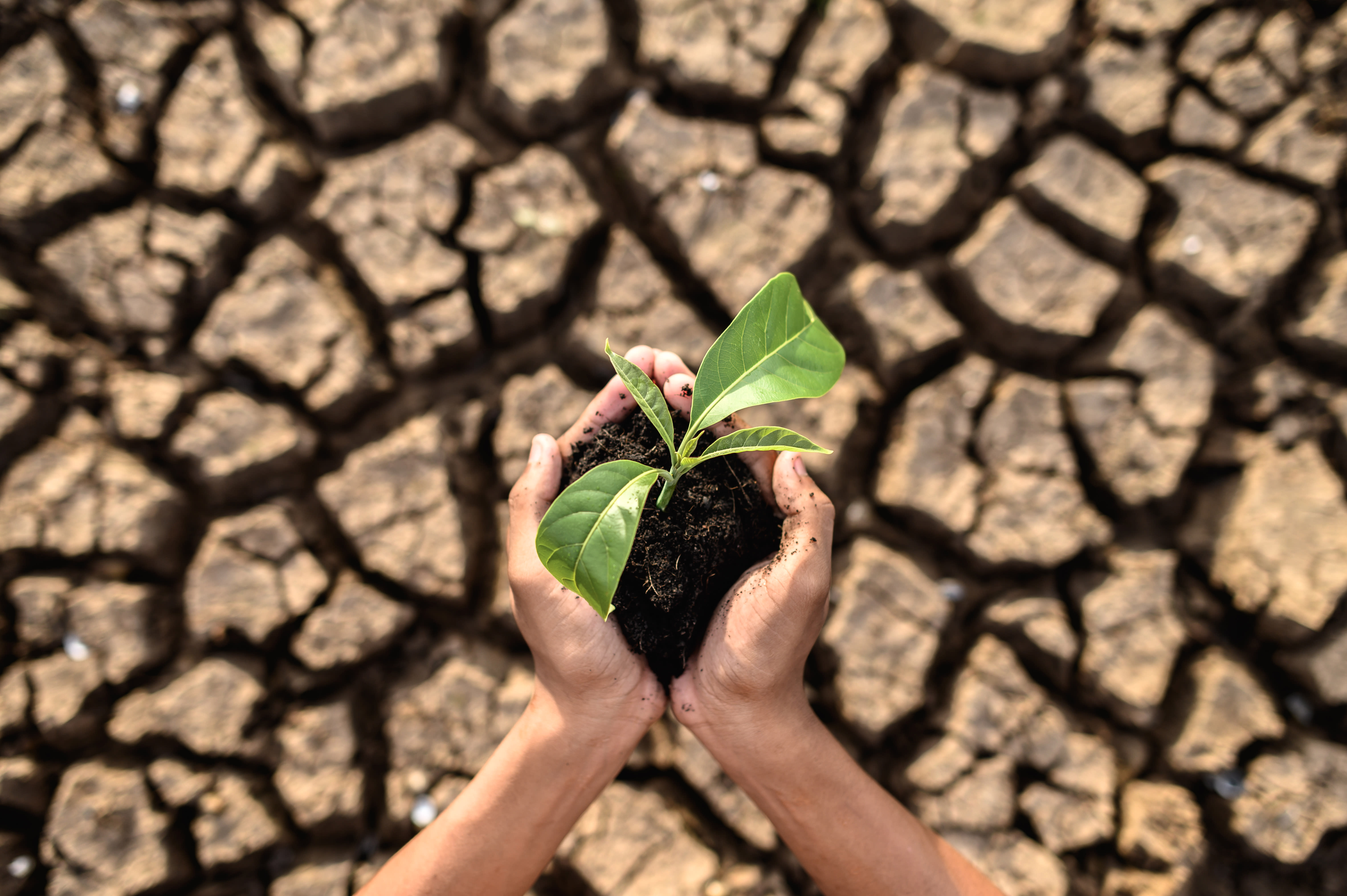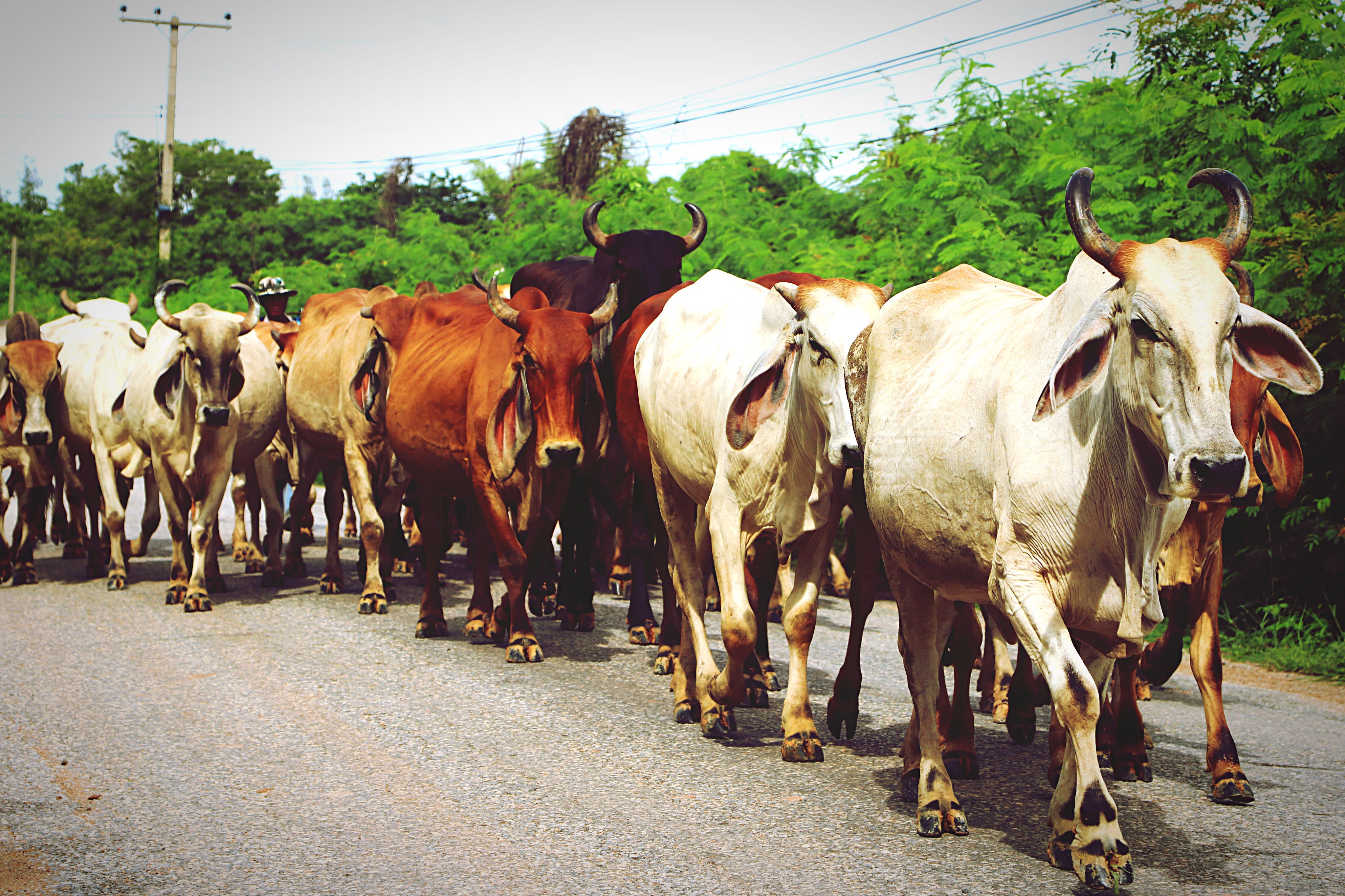Background
Climate change is significantly impacting Nigeria's agriculture, affecting production and ultimately, food security. Rising temperatures, varying rainfall patterns, and more frequent extreme weather events are altering crop suitability, leading to lower yields and poorer quality in agricultural-producing states in Nigeria. This threatens food security, promotes hunger, and also affects farmers' livelihoods. To address this, Nigeria needs to promote and scale up climate-resilient farming practices, sustainable soil and water management, utilize improved weather forecasting technologies for building early warning systems, and empower farmers with the knowledge and resources to implement these adaptive strategies.
Impacts of Climate Change on Food Production
According to the Intergovernmental Panel on Climate Change (IPCC) 2021 report, global temperatures have increased by approximately 1.1°C since the pre-industrial period, with the past decade being the warmest on record, and the world will probably reach or exceed 1.5 degrees C (2.7 degrees F) of warming within just the next two decades. This warming trend is accompanied by changing rainfall patterns, more frequent and intense extreme weather events, and rising sea levels, all of which have profound effects on agriculture.
Variations in rainfall patterns result in droughts, floods, and unpredictable growing seasons, making it challenging for farmers to plan and prepare for crop cultivation. Soil quality will decline due to increased erosion, salinization, and nutrient depletion, reducing its fertility and affecting crop yields. Rising temperatures alter the suitable zones for crop cultivation, forcing farmers to adapt to new conditions or relocate. Availability of water needed for irrigation is influenced by distortions in rainfall patterns and increased evaporation due to warmer temperatures, thereby impacting crop growth and productivity. Ultimately, impacting nutritional value and marketability, likewise, livestock production can suffer severe consequences as droughts lead to the destruction of quality animal fodders, reducing the nutritional value of animal feed. Excessive heat can lead to a reduction in milk production, productivity, and feed conversion ratio in animals. Heat stress increases mortality and morbidity rates in animals, while excessive floods breed disease prevalence and transmission among animals.
In 2022, Nigeria experienced severe flooding that resulted in significant losses in the agricultural sector. An estimated 8.4 million tonnes of output from fourteen crop varieties, including rice, maize, pepper, sorghum, and vegetables, were lost, valued at N384.4 billion. The fishery sector suffered losses of N100.2 billion, while over N93.04 billion was lost in the livestock sector.
The flooding affected over 20 states, including Jigawa, Kogi, Anambra, and Bayelsa, leading to widespread destruction of farmland and crops. In Jigawa State, 138,442 hectares of farmland were flooded, impacting 1,554 farming communities across 22 local government areas. In Nasarawa State, the floods destroyed over 4,500 hectares of Olam Rice farm, resulting in losses of over $15 million, in addition to farmlands belonging to other smallholders.
The cumulative effect of climate change on crop and livestock production can further worsen food insecurity which is currently affecting the country. This decline in crop yields and livestock productivity will push millions of people below the poverty line. In Africa alone, it's projected that an additional 43 million people could be pushed below the poverty line by 2030, exacerbating the already dire economic conditions in the region.
Pathways to Resilience Agricultural Production
Climate change resilience is the ability to prepare for, withstand, and recover from the challenges presented by climate change. Climate change resilience in agrifood production is crucial for food security and economic stability. This approach involves enhancing the capacity of agricultural systems to withstand and adapt to climate-related stresses through various strategies that span the entire value chain, from production to consumption.
Regenerative Agriculture Practices
Regenerative agriculture builds resilience to climate change through sustainable practices. It enhances biodiversity, enriches soils, improves watersheds, and boosts ecosystem services. Key practices include reduced external inputs, livestock integration, conservation tillage, crop rotation with cover crops, and using mulch, compost, and green manure.
In livestock farming, through regenerative grazing practices, optimized feed formulations, and effective manure management, soil health is enhanced. Breeding for resilience and integrating livestock with crop production systems promote biodiversity and ecosystem services. These practices help minimize the environmental footprint of livestock farming while maintaining productivity and efficiency.
Climate Financing
Developing resilient and climate-adaptive infrastructure, such as irrigation systems, storage facilities, and renewable energy sources, equipping employees with skills in climate adaptation, risk management, and financial planning are crucial to addressing climate risks. One way these strategies can be achieved is through climate financing. This provides the necessary capital for agribusinesses to invest in sustainable farming practices and technologies, it is dedicated towards fighting climate change. These funds can be used to develop infrastructure that mitigates climate risks, such as building flood defences, improving drainage systems, and constructing storage facilities that protect against extreme weather conditions. Additionally, it can be funding renewable energy sources such as solar and wind power to reduce carbon emissions.
Stay up-to-date!
There are however persistent significant issues of difficulty in accessing tailored financing and investment due to the high perceived risks and low returns associated with the sector, and also inability to attract big-ticket investments. According to a report by USAID in 2022, the demand for financing by approximately 220,000 agri-SMEs was estimated to be $160 billion in sub-Saharan Africa and Southeast Asia. However, it was estimated that only USD 54 billion (~34%) is currently being met through formal finance channels—leaving an annual financing gap of USD 106 billion. This has an overwhelming impact on their Agribusiness growth, productivity, resilience, and innovation.
Effective Policy and Governance
Effective policies and governance frameworks are essential for promoting resilience in agricultural value chains. Government policies that support sustainable agriculture, provide subsidies for climate-resilient technologies, and implement social safety nets for vulnerable populations can significantly enhance resilience. In the report of the National Climate Change Policy released in 2021 to be implemented from 2021-2030, it aims for a low-carbon, climate-resilient Nigeria. It aims to promote this in Agriculture by enhancing the wide adoption of climate-smart and ecologically resilient agricultural practices among small-holder farmers, reducing forest loss and degradation to mention a few. In Nigeria, the government aims to restore and protect 380,000 hectares of forest and mangrove by 2030, reducing approximately 20 percent of Nigeria's GreenHouse Gas emissions from agriculture, forestry and other land uses and also 600,000 hectares of tropical rainforest and savanna woodland are under protection by local communities.
Building Early Warning System
As the climate continues to change, creating an early warning system is vital to further enhance sustainable agriculture. This system uses sensors, monitoring, and communication to detect and alert communities to climate-related hazards, providing timely and accurate information to save lives, prevent extra damage to crops and livestock and support climate adaptation. By combining data collection, analysis, risk assessment, and community engagement, we can respond effectively to emerging climate threats. In essence, early warning systems help communities prepare for and respond to climate hazards, reducing vulnerability and promoting sustainable development.
About Vestance
Vestance focuses on optimizing agrifood value chains to enhance profitability, sustainability, and competitiveness. Its comprehensive services include value chain analysis, market research, and expert advice on sustainable agriculture best practices. Additionally, Vestance supports agribusinesses by facilitating access to diverse funding sources, improving agrifood businesses' absorptive capacity, exploring alternative financing models, and implementing effective risk management strategies.
References
Kelly Levin, David Waskow and Rhys Gerholdt (Augushttps://leadership.ng/nigerian-farmers-lose-n700bn-to-2022-floods-report/t, 2021): 5 Big Findings from the IPCC’s 2021 Climate Report. Retrieved July, 2024.
Adegwu John (2023): Nigerian Farmers Lose N700bn To 2022 Floods. Retrieved July 2024, from Leadership Newspaper
ISF Advisors ( March, 2022): The state of the agri-SME sector – Bridging the finance gap. Retrieved July 2024, from Commercial Agriculture for Smallholders and Agribusiness (CASA)
Department of Climate change of the Federal Ministry of Environment (2021): National Climate Change Policy for Nigeria 2021 – 2030. Retrieved July 2024.
USAID (2023): Nigeria Climate Change Country Profile. Retrieved July 2024.



